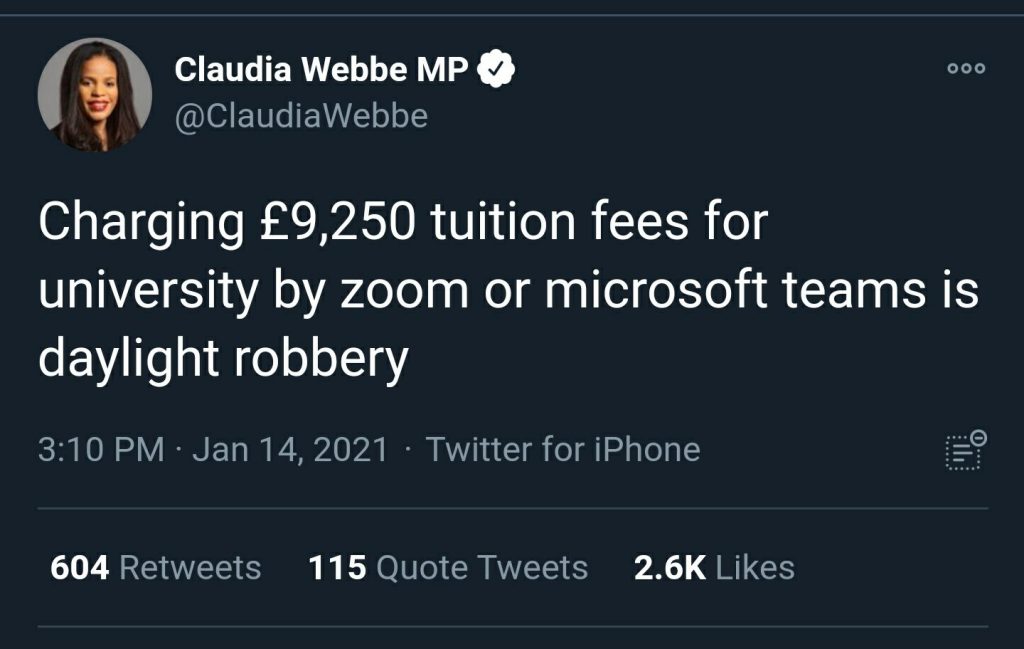The (monetary) value of a university education during a pandemic

Yesterday, Claudia Webbe, a Labour MP, called purely online university education provision during the current pandemic “daylight robbery”. She cited the maximum fees that universities can charge students in England and Wales.
I had some thoughts about that, which I put in a Twitter thread, but am saving here to refer back to. (I regularly delete my tweets.)
The fees are a product of government policy. Hence universities are in the impossible and unenviable position of both having to operate like businesses in a marketplace *and* be subject to government interference.
When I did my doctorate, I did pretty much all of it online and paid £££ for some very good supervision, access to stuff I couldn’t easily get other than through the uni library, and… the qualification at the end.
As has been written about at length elsewhere, credentials are signals to the job market and other groups. University degrees have historically been top-quality signals, but that’s less and less the case in the industries I work with. People want to see what you can do.
This is not to say that universities are just about credentials, or that those credentials aren’t valuable (I hope they are for my sake!) What I am saying is that there are other ways of packaging up knowledge, skills and understanding. Open Badges, for example.
Universities, because they’re acting like businesses, don’t have as much goodwill from the general population anymore. Especially given the general distrust of experts generated by the right-wing media over the last decade. They need to tread really carefully.
New approaches like ‘masterships’ where you get a Masters-level qualification while learning on the job are currently provided by orgs like Accenture in collaboration with universities. It’s a win/win for employer and employee, but for the uni…?
I can foresee a situation, which is probably already happening, where elite research centres are decoupled entirely from teaching, learning, and credentialing operations. As that happens, the latter function becomes more and more focused on employment.
For ~£9k you can do a 480-hour bootcamp over a few months with an org like General Assemblys and get a well-paid job at the end of it. No debt after a year. Now, I’m a graduate of Philosophy, History, and Education degrees, but I’m not sure I’d advise my kids to do traditional uni.
So back to the tweet from the Labour MP. She’s absolutely correct, despite the protestations of academics and those who love higher education (like me). You can get daily feedback to quickly develop employable skills, which is more important than ever in a pandemic.
So how will higher education respond? Who is nimble enough? I feel like the main problem is the pseudo-market created by the government. Many unis can and want to respond more quickly, but they have baggage and regulation that others do not. Sadly.
This post is Day 84 of my #100DaysToOffload challenge. Want to get involved? Find out more at 100daystooffload.com.
